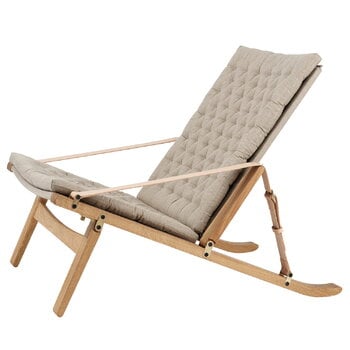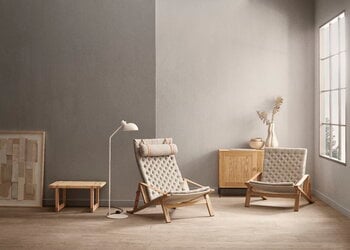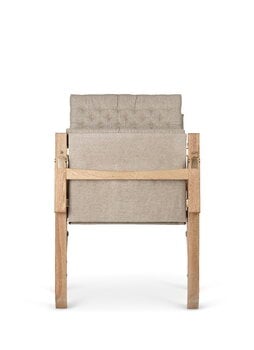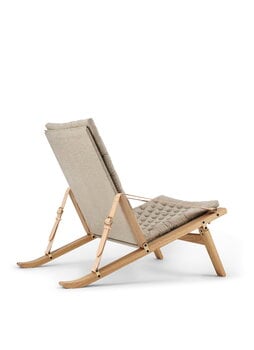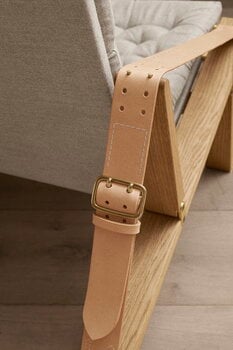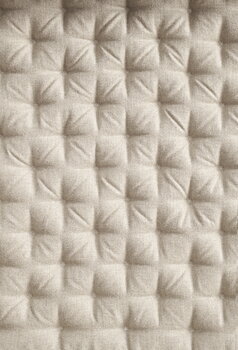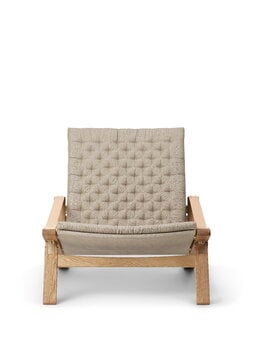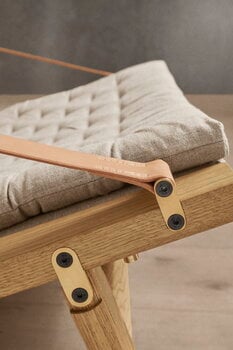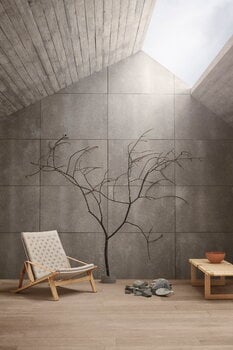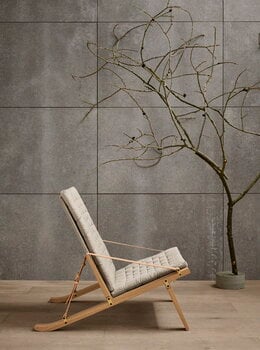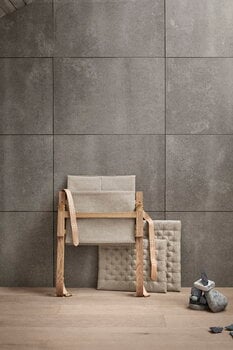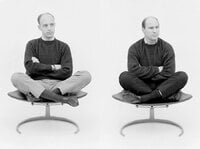Carl Hansen & Søn’s FK11 Plico chair charms with its organic expression and extremely light design. Designed by Preben Fabricius and Jørgen Kastholm in 1963, the lounge chair is composed of seat cushions upholstered in stitched linen and an easily foldable solid wood frame – Plico takes its name from the Latin word ‘to fold’. The saddle leather armrests are attached to the curved back legs, allowing you to adjust the angle of the backrest to the desired position. The harmonious design is perfected with brass details and skilful joinery.
When designing the Plico chair, the Danish design duo aimed at creating a lounge chair that would take up as little space as possible when folded without compromising on seating comfort. The result shows exceptional skill in the fields of functionality, aesthetics as well as craftsmanship. The graceful lines and timeless, natural appearance make the Plico chair a great choice for larger and smaller lounging areas.
